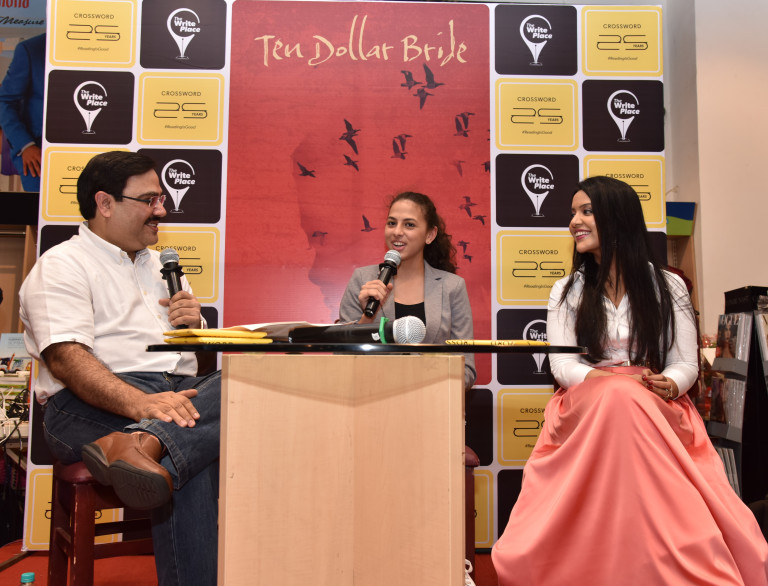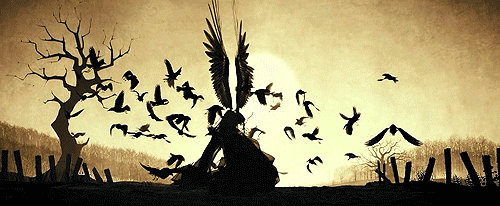Today it’s my great pleasure to be taking part in the blog tour for the latest Monkeewrench thriller from PJ Tracy, Nothing Stays Buried. I’m thrilled to be able to share with you all not only my thoughts on the book, but also a look at the opening chapter of the novel. First up though, let’s see what the book is all about.
The Official Book Blurb
Nothing Stays Buried is the eighth book in P.J. Tracy’s addictive and internationally bestselling Monkeewrench series
There’s a search for a missing girl, and another for a serial killer: death holds all the cards . . .
When Marla Gustafson vanishes on her way to her father’s farm, her car left empty on the side of an isolated country road, even Grace MacBride and her eccentric team of analysts are baffled.
Meanwhile in Minneapolis, homicide detectives Gino and Magozzi have a serial killer on their hands – two women murdered in cruelly similar fashion, with playing cards left on the bodies. But one card is an ace, the other is a four – it seems the killer is already two murders ahead.With both teams stumped, it slowly becomes clear the evidence is inexplicably entangled. And they have little time to unravel the threads: a twisted killer is intent on playing out the deck…
PROLOGUESomething horrible was going to happen to Marla. Somewhere down the road there had to be payback for her perfect childhood, her perfect career at the veterinary clinic, her perfect a partment in Minneapolis, her consistently perfect life. Friends who adored her envied her in equal measure, and secretly waited for the tragedy to come, because they believed in the law of averages and the irrefutable balance of good and bad in every life. And also because in the darkest moments of their own less than perfect lives, they just had to believe that someday Marla would get hers.
“Good things come to good people,” her father was fond of telling her on those rare occasions when the shower of her good fortune made her feel just a little bit guilty. But if that were really true, why did the rest of the world believe the opposite? The notion that goodness was punished was so pervasive that even the language was permeated with warnings. Only the good die young. Nice guys finish last. No good deed goes unpunished. Phrases like that had often given Marla pause; made her think she should try harder to do something bad occasionally, like forget to return a library book, just to even out the scales.
And then she’d run over the bunny.
“Stop crying, Marla. And stop calling it a bunny. It was just a goddamn rabbit.” Her father had tried to comfort her with semantics. “Probably the same one that ate every lick of my spinach plants last week. Every last lick.”
But he hadn’t known the worst of it, because she could never bring herself to say it aloud. The bunny hadn’t died right away. She’d seen it in her rearview mirror, trying to drag itself off the road with its front legs, because the hind legs wouldn’t work. She’d had to go back and run over it again.
It had been the right thing to do; but oh my God, that image in her rearview mirror would be with her to the end of her life, and although her father had felt great sympathy for her distress, he hadn’t felt a bit for the rabbit. How could that be? How could you feel sorry for someone for being sad and not feel sorry for something being dead?
She spent the next week imagining that the bunny had been a nursing mother, and that somewhere baby bunnies were cold and mewling in a hidey-hole, slowly dying of starvation. She never admitted that to anyone, because people tended to think you were a bit unbalanced when you empathized with animals to the point of torment. But empathy was the disease Marla had inherited from her mother, and there were no boundaries to it. She couldn’t help connecting to everyone and everything she encountered; she couldn’t stop speculating about their lives, their families, their pain—even that of silly rabbits that ate her father’s entire spinach crop and then ran out in front of a speeding car.
Normally Marla didn’t mind the night drive out to the farm, especially on a Thursday, when the freeway was empty. Tomorrow night the frenetic weekend race to lake cabins would fill the two lanes heading out of Minneapolis with a jam of lights, white and red, crawling bumper-to-bumper for sixty miles before it started to thin out. But tonight, and every other summer weeknight, the road shot straight and true into deeper and deeper blackness where the exits were few and far between. Her exit, just three miles up, was what worried her. That particular two-lane road was one bunny shy this week, thanks to her, and she greatly feared a repeat of last week’s carnage.
She took the ramp more slowly than usual, stopped at the top and spent a long time looking both ways before easing right onto the two-lane road. There was no moon tonight, and the darkness seemed to swallow the beams of her headlights, as if she were shining them down the throat of a monster. She slowed even further as she approached the S curve through the woods where the bunny had once lived, and that was the only reason she didn’t run right over the large black shape in the middle of the road.
As soon as her headlights hit the thing, she recognized it as one of those large plastic bags the volunteer crews used to pick up the occasional litter on road cleanup days. Still, it had startled her, and she could hear her heart pounding in her ears as she pulled over onto the shoulder and stopped. She sat there for a minute trying to catch her breath, her fingers still curled tight around the wheel, eyes wide and fixed on the bag.
Relax, Marla. Blink, for God’s sake. It’s not an animal, not a person; it’s just a bag of trash. Normally these bags were carefully placed on the shoulder for the township truck to collect, but this one was smack-dab in the middle of the two-lane road, and a genuine hazard to any vehicle coming around the blind S curve at a normal rate of speed. It never occurred to her to simply drive around it and go on.
Her mind was already busy imagining a speeding car zipping around the first bend in the curve, slamming on the brakes, veering off the road, and plowing head-on into a tree.
It was only after she got out of the car that she also imagined that same speeding car running into her while she was trying to drag the bag off the road, which made her move a lot faster.
It was surprisingly heavy, and it made a terrible scraping sound on the pebbly asphalt as she tugged and pulled it by inches toward the shoulder, and that was when she began to suspect what was really in the bag. She released it with a little squeal and a shiver, and backed away.
Motorists killed more deer on this particular curve than all the hunters in the county managed to bring down during hunting season. You didn’t think much about what happened after the accidents unless you happened to see the roadkill crews making their rounds, loading grisly remains into the open-backed truck that hauled them away. Sometimes the job got messy, and then they had to use a shovel and a bag. Apparently this particular bag had fallen unnoticed off the back of the truck when it accelerated on the curve.
Marla looked down at the bag with a mixture of sadness and distaste, understanding the heaviness now, seeing the telltale swells and lumps that clearly marked a large object and not a collection of discarded cans and paper. At least she hadn’t killed this one; hadn’t witnessed its violent end, which made the job ahead a little easier. She wondered absently why it didn’t smell, murmured a brief prayer that the bag didn’t rip when she tried moving it again, then bent to her work.
This time she put her back to the side of the road and tried pulling the bag toward her. The large animal inside shifted and rolled with the first tug. Marla winced, but kept at it, right up until the moment the bag snagged on a sharp piece of broken asphalt, tore open, and a bloody human arm fell out.
Marla snapped upright and stifled a choked gasp. For a minute her mind didn’t work at all, and then when it started up again it manufactured terrible pictures. Not that there was a dead person in that bag, because that was a reality she just couldn’t accept at the moment. What occurred to her instead was that in the movies, just when the heroine thought she was safe, the supposedly dead person’s hand jerked out and grabbed her ankle.
“Oh God, oh God, oh God.” She began to back very, very carefully away, toward her car, keeping her eyes focused on the inky blackness of the road ahead, because she didn’t dare look down at the bag again.
And then suddenly, twin white lights pierced the darkness and began rolling toward her, faster and faster. Too small for headlights. They’re reverse lights. Dear Jesus, there was a truck up there, so close, and she’d never even seen it. And now it was coming for her.
Marla was totally paralyzed for a few moments, trying to regain her composure, rationalizing for the sake of her sanity, because none of this made sense in her perfect world.
The truck is not coming for you, it’s coming to help you. This is the country—people stop to offer assistance when they see a car on the side of the road, because in Buttonwillow, Minnesota, everybody is your neighbor, even if you live twenty miles apart. It’s probably somebody you know, maybe even somebody you went to grade school with. And there’s a perfectly reasonable explanation for that body in the trash bag. . . .
Marla snapped back to reality. No, no, no, there wasn’t. There was no perfectly reasonable explanation on God’s green earth for a dead body in a trash bag in the middle of a deserted country road. No perfectly reasonable explanation for this truck, suddenly appearing out of nowhere. And now, because she’d been thinking too much again, it was too late to duck into the safety of her car and screech away. Too late to call 911 or Jacob, because the truck had rolled to a stop a few feet in front of her car and now the driver’s door was slowly creaking open. At that point, she abandoned all thought, succumbed to panic and instinct, and bolted into the woods.
Every inch of her felt like it was on fire as she leapt through the brush and bramble, dodging trees in the darkness, clambering over fallen logs, tripping over exposed roots and scrambling back to her feet. She knew these woods—Cutter Creek was to her right, and a few hundred yards up ahead there was a clearing and then Hank Schifsky’s cornfield. Another quarter of a mile up was his long dirt driveway and his old farmhouse. She could make it.
And then she felt herself falling, felt her ankle give way as she tumbled down a steep, washed-out gully that hadn’t existed when she’d run wild in these woods as a kid.
She choked back whimpers of fear and pain and dragged herself to the base of a large oak tree, trying to make herself as small as possible. And as stupid as it was, she hadn’t lost hope; she was still waiting to hear the call of a friendly voice behind her. “Ma’am? Ma’am! Don’t run, I’m here to help you!”
But all she heard was relentless, crashing footsteps in the woods behind her. The raspy pant of her pursuer.
Something switched off inside her. She divorced herself from her immediate reality, from her physical being, and retreated deep into the core of her soul. There it was peaceful, a place where she could think of her past and her future. She should have married Jacob. And if he’d still have her, she’d do just that. They’d have babies and live in Buttonwillow until the end of their days. They should have done it a long time ago, back when they were both eighteen and Jacob had given her the promise ring she still wore on her right ring finger, even though she was a grown woman.
The footsteps were getting closer now, crunching through the dead branches and old, dried leaves that littered the forest floor. Things couldn’t end here. She had to leave something so Jacob and her father would know she’d been here, had made it this far, and could maybe piece together what had happened if she didn’t make it out of these woods alive.
She pulled the ring off her finger and placed it by the base of the tree where she was hiding, and as she heard the labored breathing getting louder, she got up and started running on her swollen, ruined ankle, screaming at the top of her lungs.
…
The lights were what Walt would always remember. They didn’t belong in this dark night in the countryside. They lit up the thick woods on the north side of the narrow road, throwing spooky shadows through the tightly packed tree trunks and brush.
They shed unwelcome light on the north side, where there was a turnaround with space enough for one car to park, for the daring anglers who skidded down the treacherous slope to drop their lines in the creek below. You fished at night during the few weeks when the suckers were running, but for the rest of the summer, only kids parked there at night to kiss and hold hands, and sometimes more than that, before the clock ticked to curfew.
The turnaround had been there as long as Walt had been alive. He’d parked there with Mary, his high school sweetheart, before sneaking back home, and he’d proposed to her there, too. Right there, where the path down to the creek carved a hole in a stand of cottonwoods far older than he was now.
All these things belonged here, had always been here, but not the lights, and yet tonight they were everywhere, startling the early spring frogs into silence, as if the whole place had been swept clean of night creatures.
Marla’s car, the white Ford Explorer he’d bought for her when she graduated from college, was sitting in the turnaround, visiting the very spot where she might have been conceived all those years ago. It was spotting from the gentle April rain that had just started to fall, and Walt’s eyes brushed over it as if it wasn’t there, because it shouldn’t be.
He had been standing here so long while the Highway Patrol set up the lights and county deputies paced the grounds. He was glad the Highway Patrol was here. The more departments, the better. It gave the scene, the tragedy, a level of import that promised careful attention.
The crime-scene techs, who looked like astronauts in their white suits and booties, hurried to cover that dreadful, bloody place in the middle of the road that was surrounded by blinking red lights and peppered with iridescent yellow crime-scene markers. One of the techs, who had known Walt since he’d worked for him baling hay as a high schooler, looked over his shoulder at the old man.
“Probably isn’t human blood at all,” he said with a fake, forced shrug. “Raccoon, squirrel, deer more than likely.”
Walt didn’t move. He kept looking at the plastic now covering the blood, protecting it from the rain. “Marla hit a rabbit last week on this very road,” he said.
“Could have been a rabbit,” the tech said, but it was too damn much blood for anything that small and he knew it.
Marla had been missing for only a few hours, but out here, there were no time limits on reporting a missing person. This was Marla. They all knew her, like they knew every person in their district, and they knew she would have called her dad if she was going to be late for dinner.
A deputy approached Walt and tipped his brown plastic-covered hat. “Mr. Gustafson, is that Marla’s vehicle?”
Walt hesitated because no one ever called him Mr. Gustafson. “It is.”
The deputy sighed and looked down. “We’ll find her, sir. Don’t you worry.”
“Appreciate it.”
Jacob was here, too, coming out of the woods now, his face a frozen, unreadable mask. He’d been the first to arrive, getting here so soon after Walt had phoned him that he worried about how fast the boy had been driving, and how carelessly. He’d been sweet on Marla damn near forever, and was the one person in this world who was as panicked as Walt, trying hard not to show it. He was sheriff now, like his daddy before him, but he was more than that.
“How are you doing, Walt?”
“Not so good. Just like you.”
Jacob scuffed his boot through the agate stones scattered in the turnaround near Marla’s car. Harry Michaelson’s bluetick hounds started baying in the far distance, the first dogs on-site long before the patrol brought in their own hounds.
Jacob looked in the general direction of the sound as if he could see through the black of the woods beyond the lights, and looked back at Walt’s face. It was partly in shadow, and he looked younger than his seventy-odd years, with his teeth clenched and his jaw muscles bulging as he looked toward the baying sound, too. His pupils were dilated so wide, they ate nearly all of the blue of his eyes, and Jacob knew the man had to be dying inside at this moment. What had the dogs found? The seconds ticked by with interminable slowness before his shoulder unit squelched.
“Coons,” a voice came from the other end. “A whole mess of ’em.”
Walt took his first breath in a while and released a shaky exhale.
He’s in hell, Jacob thought, just like he’d been ever since he had gotten the call. “Sorry, Walt. Damn blueticks. The Highway Patrol dogs should be here any minute, and they don’t sound at a goddamned coon.”
Walt nodded, took another breath. He bobbed his head toward the Explorer without looking at it. “Maybe she broke down.”
Jacob shook his head. “Keys are still in it. It started right up. Tires are all okay.”
“Still, maybe it broke down earlier and just fixed itself sitting there. Maybe Marla . . . I don’t know, started walking, got tired, fell asleep somewhere, she works so hard, you know. . . .” His voice faded as he pressed a hand hard over his gut, because the agony was eating at him from the inside out.
Jacob looked away, pretended he didn’t hear the absolute desperation in Walt’s speculation, pretended he didn’t see anything but a lot of people, a lot of lights, and an empty car.
Nightmare. Jesus God, I’ll do anything, just let her be safe. . . .
“What’s on your mind, Jacob?”
“Walt, the hounds picked up a clear trail in the woods. It ended in a washed-out gully near the creek.”
“What does that mean?”
Jacob reached into his pocket and pulled out an evidence bag. “I found this at the base of a tree in the gully.”
Walt took a sharp breath. “That’s Marla’s ring. The ring you gave her in high school.”
“I think she left it for us, Walt.”
…
Okay. This was my first introduction to the Monkeewrench team and I can already tell you that this is a massive faux pas on my part. From the very beginning I was hooked into this story and I didn’t want to have to walk away. The book opens on the scene of a young woman who is driving to her father’s place for dinner. She never arrives and her disappearance devastates not just her father, but her whole community. When the local Sheriff calls in the Monkeewrench team to try and help locate her, the father’s honest reaction as to what has likely happened spurs them into taking the case, if only to provide closure. Meanwhile back in the city, Detectives Gino and Magozzi are on the trail of a serial killer targeting lone female joggers. The murders are brutal, the clues puzzling. The story … totally thrilling.
I don’t know quite what it was that drew me in to this book, but drawn in I was. The writing style was fluid and engaging, so very easy to read that although I was new to the team, new to the series, I very quickly felt as though I knew them. This book can be read as a standalone, it is a very self contained story, however there are clues as to a shady and dangerous past which make me want to go back and read the first seven books as soon as I can. I’ve been finding it hard to settle into book of late but this book seemed to be a turning point for me, a natural flow to it which pulled me along and had me on metaphorical edge of my seat as I waited to see quite what happened.
The pacing in this book ebbs and flows, sometimes fast and frenetic in pace, no more so than near the end when the heroes are racing against the clock to not only catch the killer, but also to avoid a heavy storm front which threatens to destroy more than just a few vacant buildings. There is also a moment when one of the key players in this story puts themselves in a position of jeopardy in order to draw out the evil. These moments are truly heart in the mouth moments, the authors managing to create a palpable tension through the writing. Then there are moments where the pace is less strained, where the Monkeewrench team are out in the country trying to piece together the facts behind Marla Gustafson’s disappearance. These scene’s feel authentic and the pace suits not only the melancholy and resignation of Marla’s father who has already lost so much in his life, but also the pace of life in the country.
I loved the characters in this story. Magozzi and Gino are a brilliant pairing and I loved the banter and camaraderie between them. Even McLaren made me smile, his personality shining through in spite of the serious nature of the case they were investigating. And the banter between the Monkeewrench crew was fun and light, and yet all seemed committed possessed of great skills from a tech perspective. A perfect bunch of misfits that just seem to fit with each other. I particularly loved the relationship between Grace and Magozzi, the way in which Grace’s impending motherhood is reflected in her thoughts and feelings about Marla’s case. I can’t say how this compares to her character before, only how it works in this novel and for me it seemed to fit.
And the killer? Well they were remorseless, determined, highly skilled and yet were still able to surprise. You can question if their motives were driven by nature or (lack of) nurture, but their feelings towards their victims were harsh and fuelled by a complete lack of respect which kind of makes the final scenes of the novel all the more surprising and even a little heartwarming. I don’t mind admitting that there was one particular bit which got me a little in the old tear ducts. And the vital clue – the one that brings everything together… Well that’s the most unusual of all. Completely crazy, completely implausible and unbelievable, and yet somehow it just fits.
Absolutely loved this book and it’s put a spring back into my reading step. A massive thanks to Jenny Platt and publishers Michael Joseph for inviting me to be on the tour and for providing an advance copy of the book for review. It was released on 24th August and is available to purchase here.
Amazon UK | Amazon US | Kobo | Waterstones
About the Author
 Nothing Stays Buried is the eighth book in the hugely popular and addictive Monkeewrench series by internationally bestselling authors, and mother and daughter duo, P.J Tracy. Tragically, co-author P.J passed away in December 2016. Traci will continue to write under the name in honour of her mother’s legacy.
Nothing Stays Buried is the eighth book in the hugely popular and addictive Monkeewrench series by internationally bestselling authors, and mother and daughter duo, P.J Tracy. Tragically, co-author P.J passed away in December 2016. Traci will continue to write under the name in honour of her mother’s legacy.
P.J. Tracy was the pseudonym for the mother-and-daughter writing team of P.J. and Traci Lambrecht. Together PJ and Traci were authors of bestselling thrillers Want to Play? (Richard and Judy Book Club pick), Live Bait, Dead Run, Snow Blind, Play to Kill, Two Evils and Cold Kill.
Website
Make sure to check out some of the other brilliant blogs taking part in the tour.

If you liked this please share the #booklove





